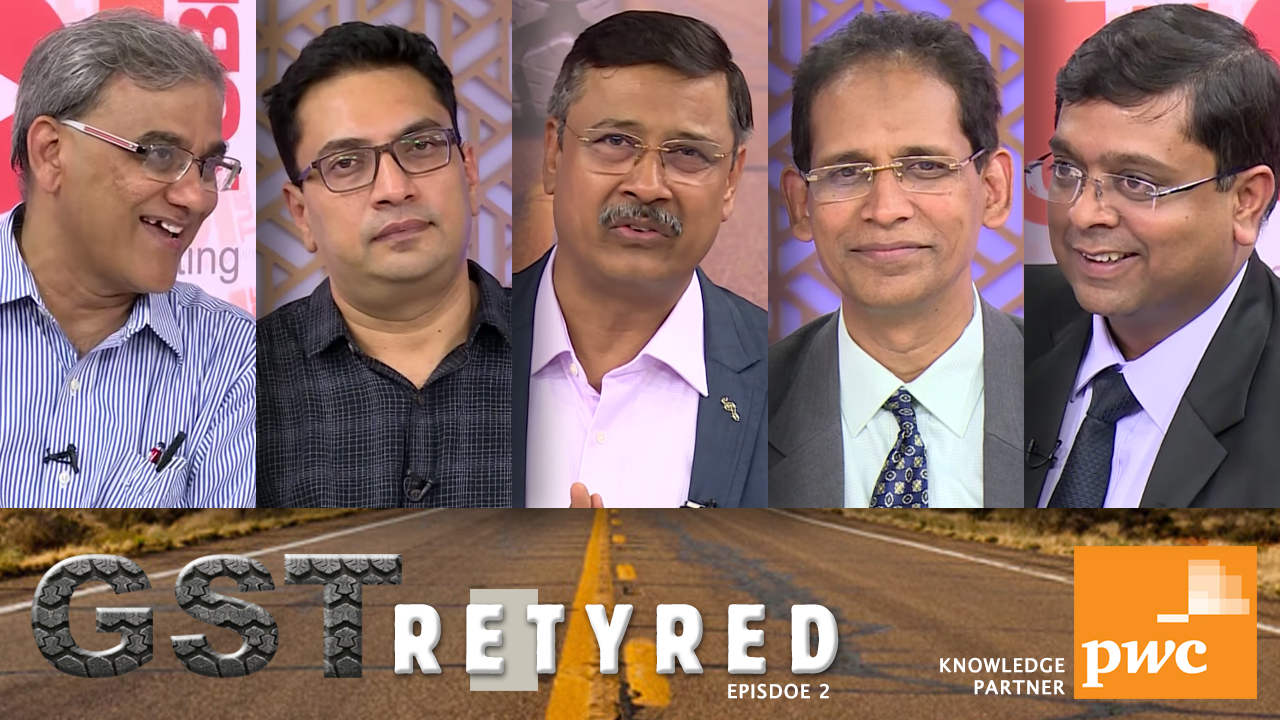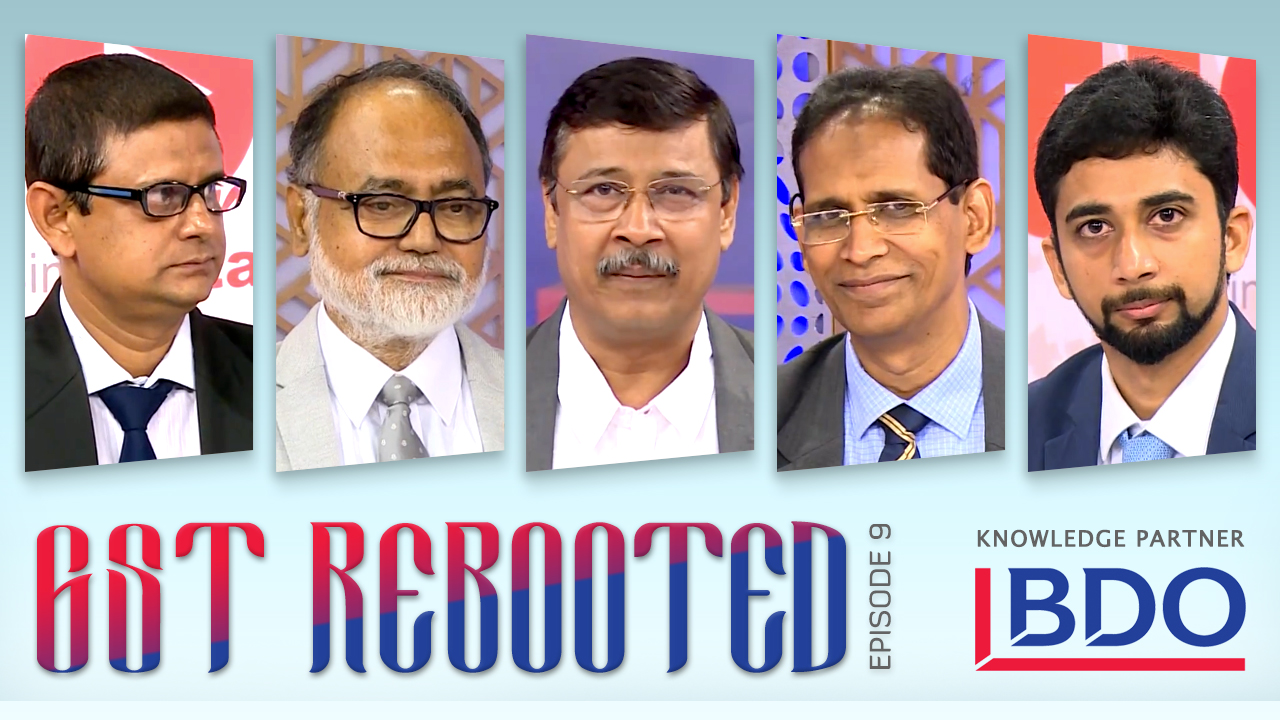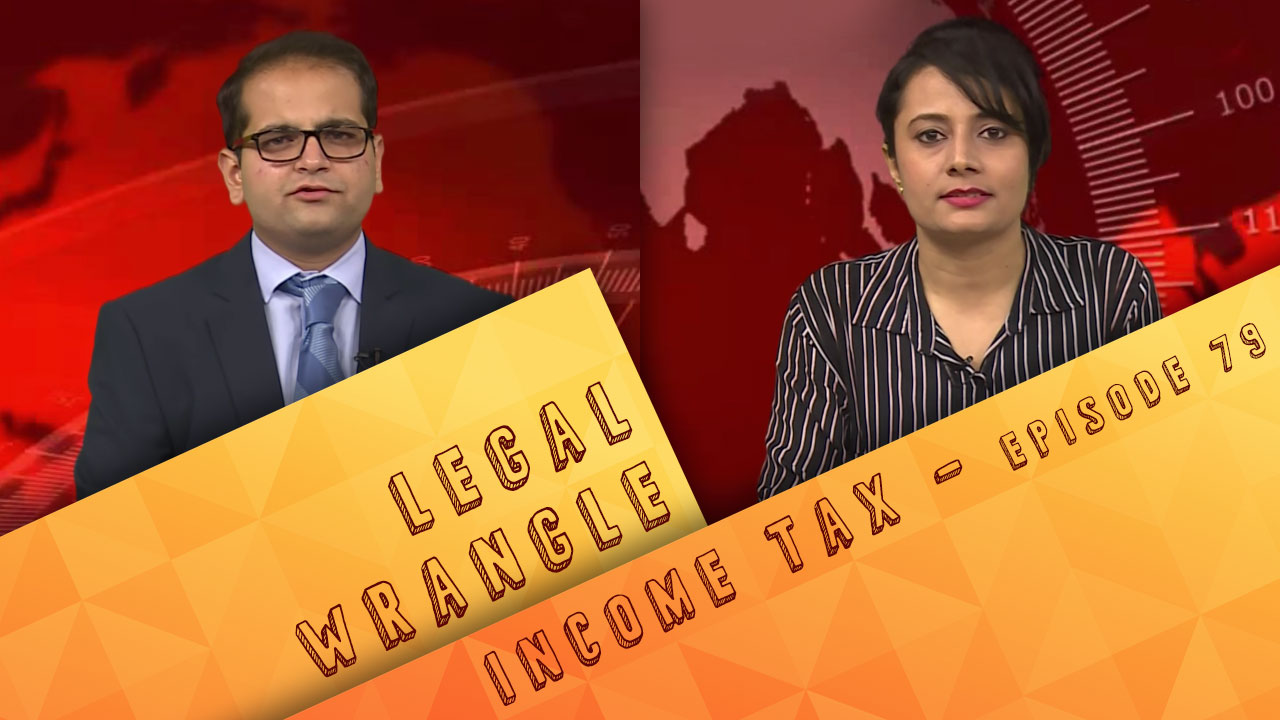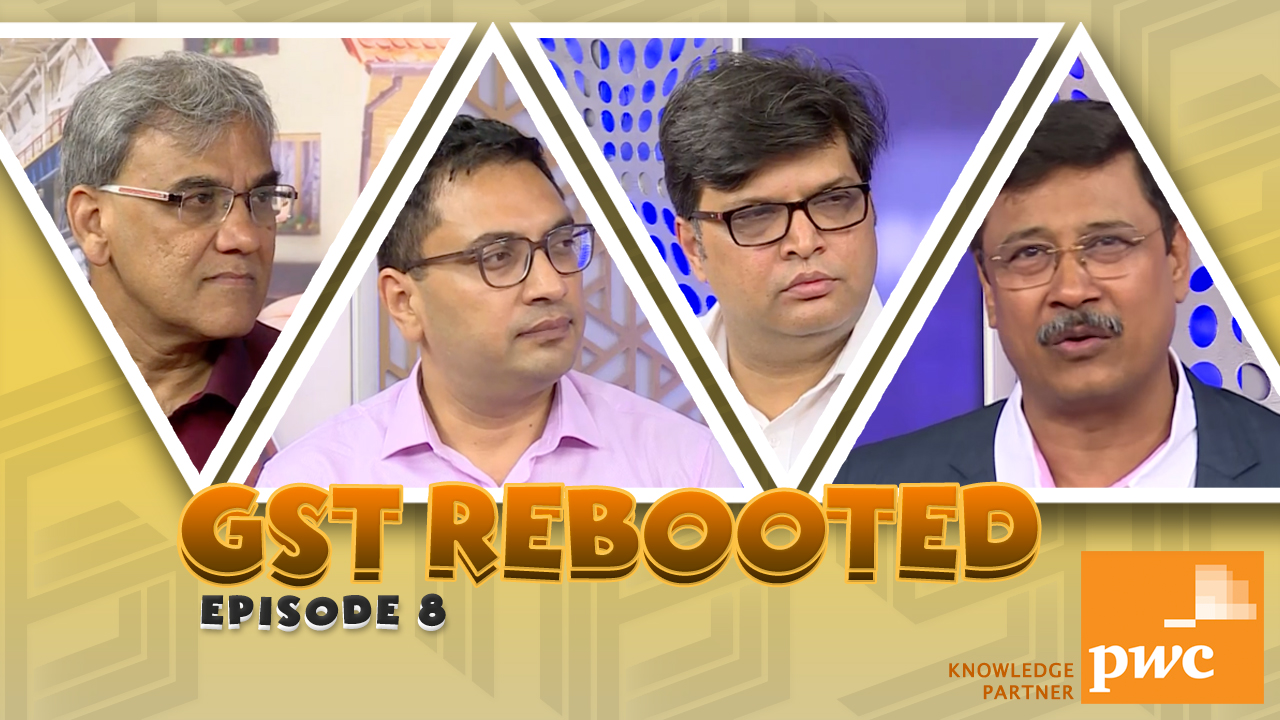|
SERVICE TAX
2018-TIOL-1656-HC-MAD-ST + Case Story
CCE & ST Vs Sify Technologies Ltd
ST - Service tax was being paid on the net amount received by the respondent, that is, on the invoice price minus TDS amount withheld by the client - accounting system did not provide for the capturing of the amount of Tax Deducted at Source (TDS) recovery made by their clients from their invoices for the calculation of their service tax liability - respondent did not pay the appropriate service tax on the TDS amount withheld by their clients - SCN issued - respondent submitting that the short remittance was a result of wrong software programme and the shortfall in the remittance was not wilful - Adjudicating authority held that assessee has enjoyed financial accommodation of more than 10 crores of rupees for more than 5 years and that even the payment of interest does not cover the entire financial accommodation enjoyed by them and, therefore, he held that the assessee is liable to pay penalty under Section 78 of the Finance Act, 1994 - in appeal, the respondent contented that when it come to know that this part of the gross receipt is also taxable, it has discharged the liability thereon and sought leniency in imposition of penalty - CESTAT setting aside the order of penalty leviable under Section 78 of the Finance Act, by invoking Section 80 of the Finance Act, 1994 - Revenue in appeal before High Court.
Held: Service Tax could not have been calculated on amount received from the clients minus TDS - Violation of a statute in which there is no ambiguity and relying on the software programme as a reason for non payment of service tax in time cannot be a reasonable cause for the failure to pay tax, in time - respondent cannot blame the system error or a faulty software by which the service tax payable was calculated - It is clearly a bogey raised by the respondent to evade payment the service tax - The service tax has been paid only after the inspection and investigation by the department and full payment of service tax is not a mitigating circumstance, in the facts of the case - as per Section 67 of the Finance Act, 1994, service tax is payable on the gross amount of value service rendered and service tax is payable once the amount billed is realized - But for the investigation, the non payment of service tax would have gone unnoticed - The amount received from the client would include the entire service tax which has been calculated from the customer and it should have been paid to the department - The TDS amount withheld cannot be said to include the service tax component - Viewed in this angle the respondent has received the service tax and has not passed it on to the department - respondent, therefore, has clearly manipulated their accounts and paid lesser service tax even though they have recovered the entire portion of service tax from the client - The respondent cannot take shelter under a faulty programme when they themselves handled the system - order of the Tribunal therefore deserves to be set aside and the respondent is liable to pay penalty - Section 80 of the Finance Act, 1994, cannot be invoked - considering the facts and circumstances of the case and also considering the fact that the department has not challenged the concession granted to the respondent by the adjudicating authority, the same concession is extended to the respondent by reducing 25% of the penalty amount on Rs.1 crore and 10 lakhs provided the same is paid within 30 days from the date of receipt of the communication of this order - Revenue appeal allowed in above terms: High Court [para 15 to 18]
- Appeal allowed
: MADRAS HIGH COURT
ST - Services provided to Agriculture Produce Market Committee, Ahmednagar - demand of service tax confirmed under the head of Commercial construction services - appeal to CESTAT. Held: Issue has been decided in the case of A.B. Projects Pvt. Ltd. - 2017-TIOL-3031-CESTAT-MUM where it is held that construction for APMC is not taxable as the activities of APMC, a charitable organization are not commercial in nature - impugned order set aside and appeal allowed: CESTAT [para 4]
- Appeal allowed : MUMBAI CESTAT
ST - The assessee are engaged in construction of residential and commercial complex - It entered into agreement with the Dwarka association to jointly develop the property of old flats into a new residential complex out of which few flat owners would be entitled for a flat measuring 1000 sq.ft each in lieu of their relinquishing the undivided share of land in favour of the assessee - The assessee paid service tax amount collected from the land owners towards the additional area, however no tax was paid for the construction of other flats - Duty demand was raised with interest & penalty - Held - In the present case, the scenario is as follows out of the 75 flats, in consideration of land rights,assessee constructed and provided one flat to each of the 45 flat owners - Thus, instead of paying consideration in cash to these 45 persons for the land rights, the same has been paid in kind by constructing and handing over the flats - For remaining flats the assessee was unencumbered and free to sell those flats to other customers at a price - The duty has been paid on remaining 30 flats which have been sold by them to other customers for consideration in cash - However, 45 flats were not for sale in the market but for the personal use of the erstwhile flat owners - To comprehend whether service tax liability arises or not it is important to take look at the two Board Circular No. 108/2/2009-S.T as well as No.151/2/2012-ST read with Section 65 (105) (zzzh) of the Act - Therefore, it can be concluded that no service tax liability arises in respect of the construction of flats provided by the assessee to 45 flat owners in lieu of their relinquishing their undivided share of land - An identical issue was deliberated in the case of Vasantha Green Projects Vs CCT Rangareddy GST , following the same - The order challenged is set aside : CESTAT (Para 2, 5, 6)
- Appeal Allowed : CHENNAI CESTAT
2018-TIOL-2556-CESTAT-BANG
Tyresoles India Pvt Ltd Vs CCE, C & ST
ST - The assessee is engaged in re-treading of tyres - It is discharging service tax on management maintenance or repair services - In addition, it is also paying the KVAT portion attributable to the sale of goods - The issue at hand was whether service tax was required to be paid on the gross value of the goods received by the assessee towards providing the service of re-treading which also included the value of the goods used in such service on which the VAT has been paid - Differential duty demand was raised.
Held - This issue has been deliberated in the case of Safety Retreading Co. P. Ltd. Vs. CCE, Salem - The ratio laid down by the SC that the assessee is liable to tax only on the service component of the value of goods - Following this decision the issue is settled in favour of the assessee - Hence, the order challenged is set aside: CESTAT (Para 1 ,5)
- Appeal Allowed : BANGALORE CESTAT
CENTRAL EXCISE
2018-TIOL-1657-HC-MAD-CX
Vela Smelters Pvt Ltd Vs Customs & Central Excise Settlement Commission
CX - Settlement Commission held that the appellant had not made a full and true disclosure and, therefore, rejected the application – Single Judge dismissing the Writ Petition – Appellant challenging this order of Single Judge. Held: In order to invoke the process of settlement, the appellant/ petitioner must show utmost good faith and make a true and complete disclosure of all the facts and it is only with the object of establishing a procedure for settlement of cases arising under the Customs Act and Central Excise Act, the Settlement Commission was constituted conferring on it certain exclusive powers including grant of immunity from prosecution etc. - Settlement Commission has considered the entire facts and has come to the conclusion by order dated 09.10.2012 that the petitioner/ appellant has not made a true and full disclosure in order to enable the petitioner/ appellant to invoke the process of settlement - jurisdiction of the Writ Court is restricted to testing the validity of the order of the Settlement Commission on the touchstone of the procedure adopted by the Settlement Commission and the Writ Court cannot go into the question of facts and consider whether the Settlement Commission was right on facts or not - Settlement Commission had after giving opportunity to the appellant/ petitioner reached the conclusion that the appellant/ petitioner is not entitled to the benefits of the process of settlement and the Single Judge has rightly held that the appellant had not made out a case for interference with the conclusions of the Settlement Commission inasmuch as there was no violation of principles of natural justice, on the part of the Settlement Commission - dismissal of the Writ Petition in W.P.No.30162 of 2012 by the Single Judge, therefore, does not call for any interference and accordingly the intra-Court appeal stands dismissed: High Court [para 14, 18, 19] CX - Challenge in the Writ Petition (15109 of 2018) is to the order of the Commissioner of Central Excise, Salem dated 27.03.2018, in and by which, the Commissioner had taken up the process of re-assessment pursuant to the orders of the Settlement Commission dated 09.10.2012, whereby, the Settlement Commission had dis-allowed the settlement process and directed the matter to be remitted to the concerned jurisdictional commissioner for assessment in accordance with law.
Held: Admittedly, the order dated 27.03.2018 is an appealable order - Writ Petition cannot be entertained in view of the fact that there is an efficacious alternative remedy available in the form of an appeal to the CESTAT - Writ Petition is, therefore, dismissed on the ground of availability of alternative remedy and in view of the fact that the Writ Petition had been pending, Petitioner is permited to file an appeal within 30 days from the date of receipt of a copy of this order before the CESTAT – Petition disposed of: High Court [para 20 to 22]
- Petition dismissed/disposed of
: MADRAS HIGH COURT
CX - Assessee is engaged in manufacture of hose pipe for aeronautical industry - During audit, it was noticed that assessee have wrongly availed the CENVAT credit of service tax paid on certain services which are related to trading of goods also which was exempted service in violation of provisions of Rule 6(1) of CCR, 2004 - On being pointed out by audit, assessee has reversed the credit before issue of SCN - Whether the assessee has availed as well as utilized the inadmissible credit during period November 2008 to October 2009 is disputed, therefore, it is necessary to remand this case to the original authority to verify and quantify the inadmissible credit whether utilized by assessee and thereafter pass de novo order deciding the quantum of penalty to be imposed on assessee for utilizing the inadmissible credit: CESTAT
- Matter remanded : BANGALORE CESTAT
CX - Assessee was engaged in manufacture of Sugar Mill Machinery & Parts thereof and were also availing Cenvat credit on inputs/raw materials used in manufacture of said products - During audit, it was noticed that assessee had shown purchase of huge quantity of various raw materials viz. M.S. Angles, M.S. Plates, M.S. Shape & Section - It was stated that the assessee was sending goods for job work, but some of such Cenvatable inputs have not been received back within the stipulated time - Further, with regard to purchase of inputs the assessee had produced Raw Material Register and the same was updated to 31.03.2006, in this regards, the assessee was alleged to have not given any corroborative evidence - Goods sent for job work have subsequently been received back in factory and the assessee has already availed the credit on 31st March, 2007 - Revenue have not objected to said credit - Therefore, order of Commissioner (A), disallowing credit has become infructous and is set aside - Confirmation of penalty is also set aside - With regard to credit of Rs.41,64,258/-, the assessee has submitted copies of bills, ledger account, proof of payment to suppliers, cash payment vouchers for payment of freight, copies of GR's, material receipt register, ledger account of freight and cartage to prove that the goods had actually been received in the factory - Suppliers of input had in their statements confirmed supply of goods to the assessee - Therefore, Commissioner (A) has rightly allowed the credit and set aside the penalty: CESTAT
- Assessee's appeal allowed : ALLAHABAD CESTAT
CUSTOMS
Cus - The assessee is a manufacturer of refined oil and the imported crude palmolein is further refined after clearance and sold for human consumption.imported crude palm oil of edible grade used in manufacturing of RBD palm oil - It filed bills of entry claiming classification under Tariff Item No.15111000 and also claiming concessional duty under Notification No.21/02-Cus - The Revenue rejected the claim for concessional rate of duty on the ground that the assessee did not furnish any evidence or any test, at any stage, that would demonstrate compliance with the beta carotene presence in the imported consignment - Furthermore, while finalizing provisional assessment it classified the subject goods under Chapter 1511 9090 - Differential duty demand was raised - Hence, the present appeal on the issue of concessional rate of duty. Held - General Interpretative Rules for classification is to be followed and the description given in chapter sub-heading and chapter notes, section note read with HSN Explanatory Notes should be the criteria - The description given in Sl. No. 34 of Notification 21/2002 specifying values is only for giving exemption to specified goods - Classification given in Circular No. 85/2003 , cannot be taken as criteria for classifying the goods under the Customs Tariff - On an identical issue of classification in the case of Gujarat Ambuja Exports v. CC, Kandla has classified the imported goods under CTH 1511 10 00 and not under CTH 1511 90 - Main Chapter Heading 1511 covers palm oil and fractions whether or not refined but not chemically modified - Chapter 1511 10 00 covers "crude oil" and Chapter 1511 90 covers "Others" - When the imported goods conform to the specific description under Ch 1511 10 00 as "crude Oil" and there is no specific chapter note or HSN Explanation specifying criteria of acid value or carotenoid content for classifying the crude oil - With respect to eligibility of concessional rate of duty, the assessing officer slacked in performing his duty - It was his responsibility to draw samples and to send it promptly for testing to ascertain the correctness of the declaration of intimation - On the basis of result of an invalid test duty liability was fastened on the importer - Hence, the order challenged is set aside: CESTAT (Para 1, 2, 6, 7, 8, 9)
- Appeal allowed : KOLKATA CESTAT
|
|











